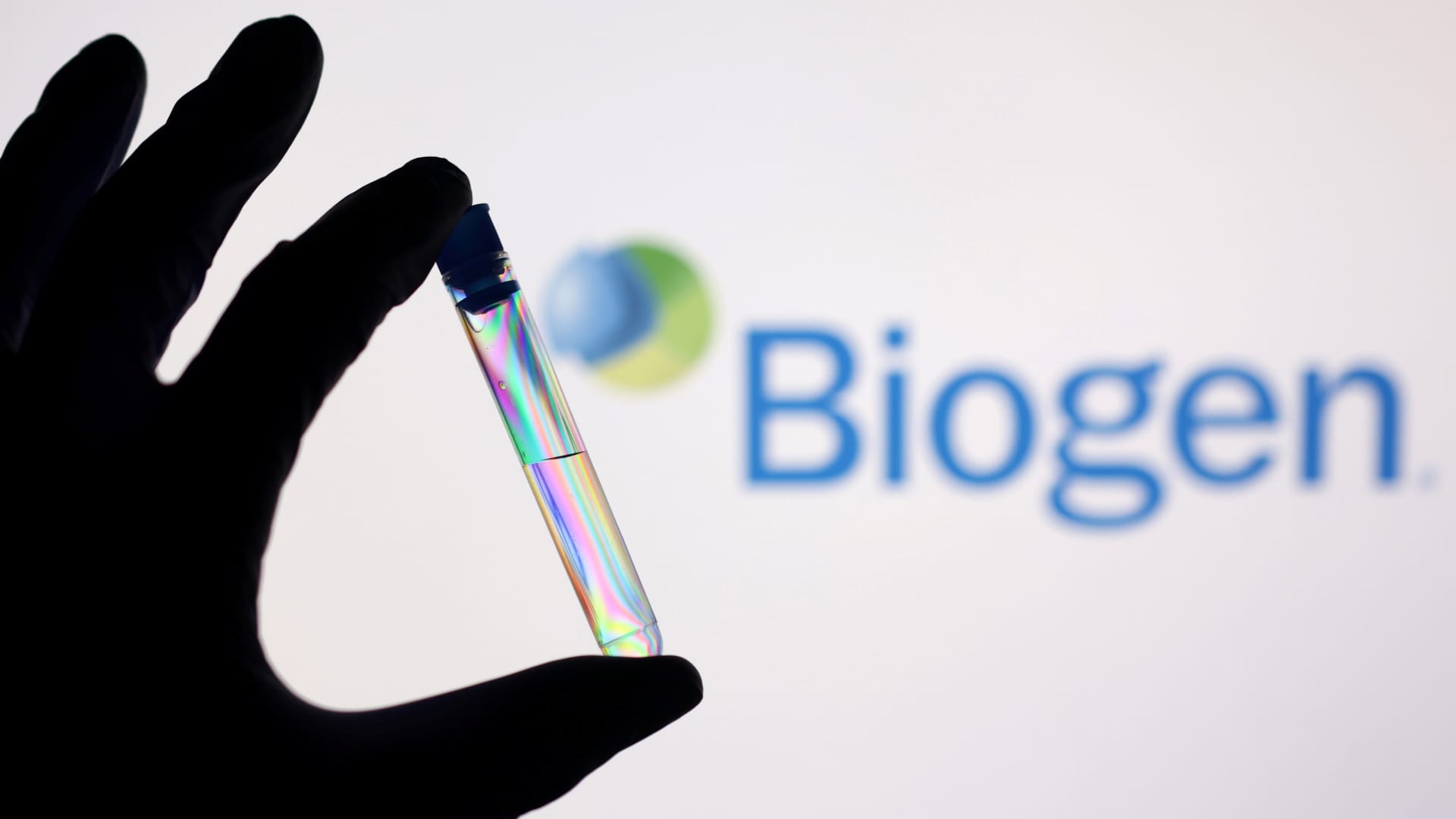Biogen on Thursday reported second-quarter earnings and revenue that topped estimates and hiked its full-year guidance, as the company’s cost cuts showed progress and sales of its breakthrough Alzheimer’s drug, Leqembi, and other new products beat expectations.
Biogen now expects full-year adjusted earnings to come in at $15.75 to $16.25 per share, up from a previous forecast of $15 to $16 per share.
The biotech company also expects 2024 sales to decline by a low-single-digit percentage. Biogen’s previous outlook was a low- to mid-single-digit percentage decrease from last year.
Leqembi, which Biogen shares with Eisai, became the second drug proven to slow the progression of Alzheimer’s to win approval in the U.S. last summer. The therapy’s launch has been gradual due to bottlenecks related to diagnostic test requirements and regular brain scans, among other issues.
But uptake of Leqembi appears to be picking up, with roughly $40 million in sales for the quarter. That’s above the $31 million analysts had expected, according to estimates compiled by StreetAccount.
The drug posted just $10 million in sales last year following its launch.
Still, Leqembi faces hurdles in Europe, where a drug regulator recommended against approving the treatment due to its risk of brain swelling and bleeding. The companies will seek a reexamination of the decision.
Biogen hopes Leqembi and other new products will drive growth as it reduces costs and grapples with plunging demand for its multiple sclerosis therapies, some of which face competition from cheaper generics. The company expects to achieve roughly $1 billion in gross cost savings by the end of 2025, according to its annual report in February.
Here’s what Biogen reported for the second quarter compared with what Wall Street was expecting, based on a survey of analysts by LSEG:
- Earnings per share: $5.28 adjusted vs. $4.03 expected
- Revenue: $2.47 billion vs. $2.38 billion expected
Biogen booked sales of $2.47 billion for the quarter, which is roughly flat from the year-earlier period.
The drugmaker posted net income of $583.6 million, or $4 per share, for the second quarter. That compares with net income of $591.6 million, or $4.07 per share, for the same period a year ago.
Adjusting for one-time items, the company reported earnings of $5.28 per share.
Investors are closely watching other newly launched drugs apart from Leqembi. That includes Skyclarys, which came from Biogen’s acquisition of Reata Pharmaceuticals in July 2023.
The treatment booked $100 million in sales for the second quarter. Analysts had expected the drug to take in $92.3 million for the quarter, according to StreetAccount.
The Food and Drug Administration greenlit Skyclarys last year, making it the first approved treatment for Friedreich’s ataxia, a rare inherited degenerative disease that can impair walking and coordination in children as young as 5.
Zurzuvae, the first pill for postpartum depression, generated second-quarter sales of $14.9 million. Analysts had expected just $11 million in sales of that drug, StreetAccount estimates said.
Biogen shares that pill with Sage Therapeutics.
Meanwhile, Biogen’s second-quarter sales from multiple sclerosis treatments fell 5% to $1.15 billion as some products face competition from cheaper generics.
Still, some of those drugs posted higher-than-expected sales.
Tecfidera, for example, booked $252.2 million in revenue in the second quarter, which is relatively flat from the year-earlier period. Analysts had expected the once-blockbuster drug to rake in $233.3 million in revenue for the quarter, according to StreetAccount.
Clarification: This story has been updated to clarify that Biogen acquired Reata Pharmaceuticals in July 2023.

